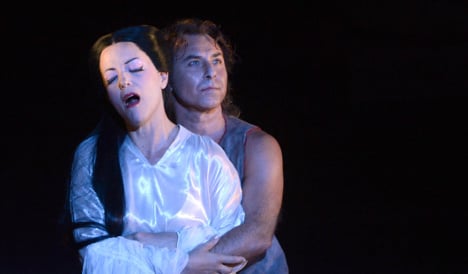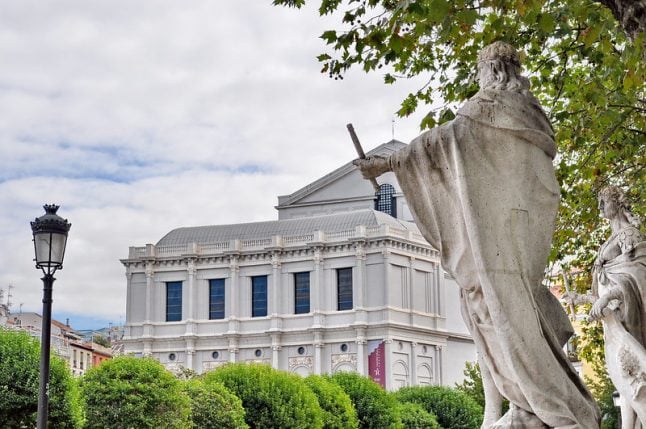"I feel it in my voice," he confided in an interview at the Metropolitan Opera House, with his pregnant girlfriend, 36-year-old Polish soprano Aleksandra Kurzak, sitting in the corner.
"Everyone's telling me that. There's a magic of happiness. We say we sing well when we're sad but me, I believe we sing better when we're happy."
His 40s, he says by contrast, were difficult. He even went through a "slight depression". But now everything's easier.
"Fifty is much easier. I feel on form. Perhaps the story of new happiness, the fact that I'm waiting for a baby. I feel a sort of second youth and a calmness," he said.
"It's a new start."
Born in 1963 in Clichy-sous-Bois, in the suburbs of Paris to Sicilian immigrants from Italy, Alagna already has a daughter, 20-year-old Ornella, from his first marriage.
The happiness and enthusiasm the singer has refound shows that he has put behind him the difficult separation from his second wife, Romanian soprano Angela Gheorghiu.
For years the couple were the superstars of the opera world, traveling and performing together, fascinating audiences with their talent and their tempestuous, off-stage relationship.
Nicknamed the "Bonnie and Clyde" of opera, they were married amid great pomp on stage at the Metropolitan Opera in 1996 by then New York mayor Rudolph Giuliani.
Alagna says opera is the "common thread" that runs through his music-loving family.
"Everyone has sung in my family. It's thanks to opera, thanks to singing that they put up with all the difficulties of migrating, poverty, economic problems, personal problems. And me as well," he said.
And there have certainly been difficult times. His first wife, Florence Lancien, died of a brain tumor in 1994, leaving him a widower with a baby daughter to bring up.
"For me opera is basically therapy. Opera has given me everything. It's opera that allowed me to assert myself, to overcome my shyness, to stand up to the world," he said.
"I had big health problems which I also overcame thanks to this passion for singing. I think that without this passion for singing, I would already be dead."
He did not elaborate on the health problems, but Alagna has in the past cancelled performances, citing health concerns.
Today he says he feels capable of singing for another 10 years, even 20 years, and he believes the critics and fans are with him.
He's in New York to sing the role of Cavaradossi in Puccini's "Tosca" alongside American soprano Patricia Racette. Next month he's booked for Bizet's "Carmen" at the Royal Opera House in London.
Saturday's performance of "Tosca" will be broadcast around the world in HD to 1,900 cinemas in 64 countries.
Alagna says the initiative — designed to widen access to an art form often dismissed as elitist — comes at an "extraordinary time" for opera.
"Opera has never been so popular thanks to HD, DVDs, the festivals all over the world, to the music in ads, in films," he said.
Alagna started his career singing in Paris cabarets before winning the international Pavarotti competition in 1988.
He rejects the cliche that opera is "inaccessible," saying that as with any discipline, it's a question of learning.
His life is intimately linked to that of the Met, where he first performed in 1996 in "La Boheme". Alagna admits however being "more nervous" today than in the past.
"The more you reach a certain level, the more you're criticized, the more people expect a miracle," he said.
The tenor who has had a double career — as a pop singer and then as an opera star — regrets that with the global economic turndown too many excuses are being found to shut things down.
"I see a lot of my colleagues who don't have work," he said. "I want to raise the alarm in saying that we mustn't abandon culture."



 Please whitelist us to continue reading.
Please whitelist us to continue reading.
Member comments